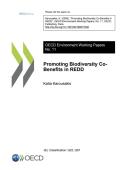Intended to inform decision-makers in the public, private and third sectors, this policy paper finds that following a two degrees Celsius path requires radical action in both developed and developing countries and that the overall pace of change is ‘recklessly slow’. According to the authors, the transition to a low carbon and resource-efficient economy should be based on equitable access to sustainable development, as well as recognition that rich countries have a responsibility to support the transition of developing countries. This transition will involve breaking the link between growth and emissions, but not stop growth. The authors emphasise that accelerating the pace of change towards a low carbon, resource-efficient economy is both feasible and crucial, and that rapid transformative change is possible with the right incentives.
The authors criticise the rigidity of the processes under the United Nations Framework Convention on Climate Change (UNFCCC), as well as the behaviour and narrow-mindedness of the participants hindering progress. Additionally, they highlight the power that vested interests continue to have. Conclusions include the following:

This report examines how biodiversity co-benefits in REDD (Reducing Emissions from Deforestation and Forest Degradation) can be enhanced, both at the design and implementation level. It discusses potential biodiversity implications of different REDD design options that have been put forward in the international climate change negotiations and proceeds by examining how the creation of additional biodiversity-specific incentives could be used to complement a REDD mechanism, so as to target biodiversity benefits directly.
This policy brief by the Climate and Development Knowledge Network (CDKN) estimates that the cost of tackling climate change in developing countries could reach some hundreds of billions of US dollars annually over the coming decades. Low-emission and climate-resilient development options often require upfront investments that can be costlier than conventional solutions. It points out that currently there is not a comprehensive global climate finance approach and it will take time before the Green Climate Fund (GCF) will be operationalised. Developing countries require support in their efforts towards climate compatible development through the use of climate finance, both public and private, that enables equitable access, national ownership, and effective management and monitoring. This can be achieved by engaging in three priority areas: international climate finance architecture; recipient readiness; and enabling environment for private sector to invest in climate compatible development.
This summary was prepared by Eldis.
This working paper explores some of the drivers and challenges affecting countries’ climate compatible development (CCD) policy processes and their incentives for engaging on this agenda. The paper argues that there is not a straightforward relationship between CCD policies and outcomes such as growth, poverty and equity. There will be winners and losers, and trade-offs among social, economic and environmental goals and between long-term and short-term benefits. This makes the political and institutional dimensions of CCD particularly challenging. According to the paper, understanding and managing the political economy of CCD is essential to promoting and strengthening climate compatible development outcomes and overcoming barriers to implementation. In addition to outlining some of the key drivers and challenges of CCD strategies, the paper provides possible solutions to overcoming the identified barriers.
This summary was prepared by Eldis.
This analytical report and an associated web-based user guide has been prepared in response to the request to help guide decision makers in developing countries to select appropriate tools and methodologies to support climate compatible development. The report, commissioned by the Climate Development Knowledge Network (CDKN) and carried out by Ecofys and IDS, takes a largely user oriented approach, taking account of user experiences and needs. In the in-depth analysis, a total of 30 tools within seven categories were analysed. The analysis produced several headline findings:
